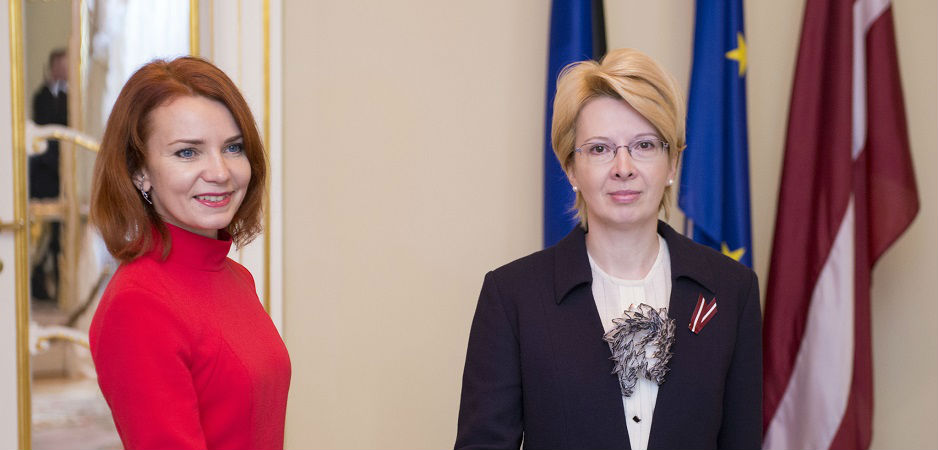Internal dissent threatens the US more than Putin, Bibi, Iran or the Islamic State. [Click the image above or scroll down to view the mini gallery.]
In Macbeth, three witches conjure up trouble. For this week, replace the three witches with Russian President Vladimir Putin, Israeli Prime Minister Binyamin Netanyahu and US Speaker John Boehner.
Strongmen have long ruled Russia with an iron fist but without a velvet glove. Boris Nemtsov, a ferocious critic of Putin, was gunned down in Moscow. Putin’s critics suffer the curious misfortune of dying prematurely. Anna Politkovskaya, a fearless investigative journalist, was murdered on Putin’s birthday in 2006. Alexander Litvinenko was sensationally killed through polonium-210 radiation poisoning in London barely three weeks after Politkovskaya’s murder. The finger of suspicion for both these deaths points to Putin’s door.
Critics of Russian rulers have long met violent deaths. Even exile in Mexico did not save Leon Trotsky from Joseph Stalin’s wrath. We will never know for sure whether Putin ordered Nemtsov’s killing. What we do know is that Nemtsov had crossed a line in the sand. He was one of few Russians who denounced the annexation of Crimea and intervention in Ukraine.
No Russian leader could have let go of Crimea. Russia fought the Crimean War from 1853 to 1856 against a coalition of France, Britain, the Ottoman Empire and Sardinia to retain Crimea. Even now, Russia’s Black Sea Fleet is stationed in Crimea. Only in 1954 did Russian leader Nikita Khrushchev gift Crimea to Ukraine — then a part of the Soviet Union. Khrushchev could have never imagined that Ukraine would jump into bed with the US. That Russia could lose Crimea could never have occurred to him in his wildest dreams. By going against Mother Russia at a time of conflict, Nemtsov had become a traitor in the eyes of many. He deserved death as per the harsh logic of a brutal land.
Since the collapse of the Soviet Union, brutality has seeped into the warp and woof of Israeli society. Israel’s 1950 Law of Return gives every Jew the right to settle in Israel. Israel absorbed over a million people, nearly 20% of its population, in a span of a few years. Many immigrants were highly skilled and helped boost innovation in the Israeli economy. The entrepreneurial chutzpah that Israel is now known for was not always the norm in the land of the kibbutz. In no small measure, this owes itself to the skills, energy and risk appetite of its recent Russian immigrants.
However, Russian immigrants brought with them traumas and imperial attitudes that have combined with Israeli nationalism to push politics to the right. Avigdor Lieberman is the leader of Yisrael Beitenu, the party of Russian speakers. He makes Binyamin “Bibi” Netanyahu appear like a cuddly teddy bear by comparison.
Bibi was in Washington this week to cuddle up with a Republican Congress that adores him. He was Boehner’s guest but not US President Barack Obama’s. It is well-known that Obama and Bibi do not see eye to eye. In fact, Bibi turned up to protest against a potential US rapprochement with Iran. He painted Iran as a rogue regime rising in power and a greater risk to the world than the Islamic State (IS).
Meanwhile, in Israel, inequality has worsened and Bibi has been blamed for a housing crisis by the country’s official watchdog. Elections are around the corner and Bibi needs to look good to stand a chance.
Boehner gave Bibi the perfect gift to appear bold, big and strong. He is the leader who gives Republicans wet dreams. Sadly, Abraham Lincoln’s party has now been captured by Strom Thurmond. In Republican eyes, Obama is weak at best and a “foreign-born” traitor at worst. Many Republicans suspect that the son of an African Muslim is anti-Semitic. Such a sneaking suspicion weakens any president. So, Obama “doth protest too much” about the unbreakable bond between Israel and the United States.
Republicans in Congress are displaying a disconcerting tendency to see the world in Manichean terms. Human beings are complicated. The world is complex. Iran might be ruled by mullahs, but it conducts elections and women can vote. The same cannot be said about Saudi Arabia. In 1953, the US committed original sin in the Middle East. In a CIA-led military coup, it deposed Iranian Prime Minister Mohammed Mosaddegh. This coup paved the way for the rise of the mullahs by destroying the first democratically elected government in the region. The current sanctions have failed. They hurt ordinary Iranians and strengthen the regime.
Iran is exceedingly moderate as compared to the Islamic State. This fanatical organization is trying to create an atavistic version of Islam where violence and intolerance hold sway. It is wrecking invaluable human heritage such as the ancient Assyrian city of Nimrud. Just as the Taliban destroyed the giant Buddha statues at Bamiyan, the Islamic States is demolishing what it calls “false idols.”
The US inadvertently helped create IS by funding Syrian opposition. Now, it needs Iran’s help to fight IS and to bring some sort of stability to the region. A realignment of interests and alliances in the Middle East has begun, but people like Boehner and Bibi missed out on the memo. Not too long ago, Bibi argued that once the US got rid of Iraq’s Saddam Hussein, Iran would implode. After failing in Iraq and Afghanistan, the US cannot afford a mess in a more populous country.
Finally, the specter of Congressmen clapping hysterically for Bibi has weakened the reputation of the United States. The world has now seen how the tail wags the dog. De facto, Israel is the 51st state of the US and its leaders command deference.
Furthermore, the applause for Bibi demonstrated that the US lives in the shadow of fear. That is why in 2014, the country targeted 41 people via drone strikes but ended up killing 1,147. Most of the dead were innocent people, but little mention is made of them. Fear and hate are now directed inward as well, particularly toward Obama. Division in Washington has become a global spectacle.
*[You can receive “The World This Week” directly in your inbox by subscribing to our mailing list. Simply visit Fair Observer and enter your email address in the space provided. Meanwhile, please find below five of our finest articles for the week.]
[seperator style=”style1″]Boris Nemtsov is Russia’s Latest Lamb to the Slaughter[/seperator]
What does the assassination of Boris Nemtsov say about Russia’s political climate?
In a Time article that proclaimed Vladimir Putin tsar and person of the year in 2007, the Russian president seemed frazzled by the West’s perception of his countrymen as “a little bit savage still or they just climbed down from the trees, you know, and probably need to have … the dirt washed out of their beards and hair.”
With the war in eastern Ukraine escalating anti-Russian sentiment in Europe and the United States, and the public opinion in Russia itself growing confidently anti-Western, the rift between the former Cold War nemeses has become a widely talked-about topic. Yet in the political climate precipitated by distrust, fissure and nationalist tensions, the assassination of opposition politician Boris Nemtsov on the night of February 27 has thrown the word “savage” back into Russia’s political discourse.
Nemtsov was shot in the back, four bullets perforating his head, heart, liver and stomach — fired from a vehicle on a Moscow bridge… Read more
[seperator style=”style1″]It is Time to Put Israel On Notice[/seperator]
Netanyahu’s speech to Congress was about securing his political future, not the future of Israel or US security.
The demeanor of Israeli Prime Minister Binyamin Netanyahu during his speech to a joint session of Congress was that of a peevish child about to throw his teddy for not getting his way on Iran. His usual rhetoric, replete with the customary comparisons to Nazi Germany have become a tedious metaphor, no more clever than his cautionary warnings over “betting the security of the world.” The same security, which Israel is in the process of gambling with by undermining our nuclear negotiations with Iran.
Yet even among the standing ovations and raucous applause, politicians who are so quick to bemoan the loss of American leadership seemed elated that a country like Israel will, once again, commandeer our foreign policy — the best bit of foreign policy to come out of the Middle East in a very long time.
Has there ever been a better moment to evaluate what the relationship with Israel… Read more
[seperator style=”style1″]Estonia is One of the Most Advanced E-Societies in the World[/seperator]
An exclusive Fair Observer interview with Estonian Foreign Minister Keit Pentus-Rosimannus.
The standoff between the European Union (EU) and Russia over eastern Ukraine has not left Estonia unaffected. Sharing a 294-kilometer border with Russia, Estonia has felt threatened since Moscow increased its military presence in the region. The country is now looking for US and NATO backing to preclude the menace of a possible Russian aggression. Estonia’s airspace was violated by a Russian jet in December 2014, a charge that Russian officials vehemently denied. US President Barack Obama pledged in a speech in Tallinn that Estonia, Lithuania and Latvia will not lose their independence again.
Pioneering a globally-reputed program of e-government and e-citizenship, Estonia is a dynamic and flourishing economy of the EU, despite being the bloc’s eight smallest country. It joined the EU in 2004 and immediately adopted the euro as its currency. The Atlantic calls Estonia the world’s “most tech-savvy government.”
Estonian Foreign Minister Keit Pentus-Rosimannus talked to Fair Observer in an exclusive interview about… Read more
[seperator style=”style1″]Water Scarcity Risks Being a Source of Conflict[/seperator]
The depletion of freshwater resources will inevitably lead to tension, conflict and migration among large swathes of the world’s population.
Yemen, an impoverished desert country racked by years of conflict, instability and misgovernance, may soon add another dubious distinction to its unfortunate track record: At current rates, it may become the first country in the world to run out of water. With apocalyptic gloom, experts have put 2025 as the date when the country’s capital, Sana’a, home to nearly 2 million residents, runs dry. The majority of Yemen’s water resources are used for agricultural purposes – a staggering 40% being used to grow khat, a mild stimulant chewed by many Yemenis.
Yemen is not alone. Many other countries through geographic ill-fate, climate change or water mismanagement are facing looming water shortages. It is estimated that 1.2 billion people, mostly in arid and semi-arid regions of the Middle East and Africa, live in regions where water is a physical scarcity. The acute lack of water will exacerbate existing problems… Read more
[seperator style=”style1″]Why Democracy Does Not Come Easily to Indonesia[/seperator]
In order to grasp today’s political situation in Indonesia, it is worth taking a look at its troubled history.
On October 20, 2014, Joko Widodo, often referred to as Jokowi, was inaugurated as the seventh president of Indonesia. Since the country’s turn toward democracy is still less than 20 years old, he is the fifth democratic president and only the second one directly elected by Indonesians.
As is often the case with young democracies, the 2014 presidential election was accompanied by various returns to authoritarian rhetoric and practices by some political stakeholders. In the end, Jokowi, the first Indonesian president who does not stem from the political elite of Suharto’s New Order, won by a slight margin.
Indonesia’s contemporary sociopolitical developments can only be fully understood when one bears in mind the nation’s historical background. The problems Indonesia has faced over the past couple of years in terms of democracy development are to be expected for a country of diverse peoples, who from one moment to the next were… Read more
We bring you perspectives from around the world. Help us to inform and educate. Your donation is tax-deductible. Join over 400 people to become a donor or you could choose to be a sponsor.
The views expressed in this article are the author’s own and do not necessarily reflect Fair Observer’s editorial policy.
Photo Credit: Frederic Legrand – COMEO / Gali Estrange / Shutterstock.com
Support Fair Observer
We rely on your support for our independence, diversity and quality.
For more than 10 years, Fair Observer has been free, fair and independent. No billionaire owns us, no advertisers control us. We are a reader-supported nonprofit. Unlike many other publications, we keep our content free for readers regardless of where they live or whether they can afford to pay. We have no paywalls and no ads.
In the post-truth era of fake news, echo chambers and filter bubbles, we publish a plurality of perspectives from around the world. Anyone can publish with us, but everyone goes through a rigorous editorial process. So, you get fact-checked, well-reasoned content instead of noise.
We publish 2,500+ voices from 90+ countries. We also conduct education and training programs
on subjects ranging from digital media and journalism to writing and critical thinking. This
doesn’t come cheap. Servers, editors, trainers and web developers cost
money.
Please consider supporting us on a regular basis as a recurring donor or a
sustaining member.
Will you support FO’s journalism?
We rely on your support for our independence, diversity and quality.













Comment